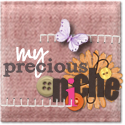These baby games will boost your infant's smarts and emerging social skills.
Peekaboo
Once your baby is 4 to 5 months old, she'll be fascinated as you pop up from behind your hands. By 6 to 8 months, she'll be playing along, hiding and then giggling when she makes eye contact.
Why it's so great: Your baby is learning a vital lesson in object permanence. "An infant doesn't realize that things continue to exist after they're out of sight," says Charles Nelson, PhD, professor of pediatrics at Harvard Medical School. "She enjoys the surprise element. You disappear and reappear, which is thrilling to her and teaches her that things come back, which will help her deal with separation anxiety later on."
How to make it even better: Hold a blanket between the two of you. This adds a lesson in body control -- she'll have to plan to remove the blanket, reach for it, and pull it away.
Patty-Cake
At first you should put your baby in your lap and repeat the rhyme while clapping his hands together. As he approaches 8 to 9 months, he'll be able to clap on his own.
Why it's so great: "Playing patty-cake is an exercise in rhythm and coordination," says Vicki Panacione, PhD, child psychologist and founder of the Better Parenting Institute, in Melbourne, Florida. "It also helps your baby develop spatial awareness, as he discovers where to place his hands." Once your child can sit up on his own, he'll become more involved in the game, improving his balance and his ability to focus.
How to make it even better: If you want to work on motor development, teach him to bring his left hand to your left, his right to your right. Learning to cross the invisible line separating left and right is a complex motor skill, one he should be able to master as he approaches his first birthday.
Lap Games
As soon as your child can hold her head up, sit her on your lap. Gently rock or bounce her while you sing or recite a rhyme. Surprise her at the end by dipping her down.
Why it's so great: Adding a poem or song turns lap time into a language lesson. "Exposure to language is important," says Jim Elicker, PhD, director of Early Childhood Programs at Purdue University in West Lafayette, Indiana. "The more she hears, the better. She's tuning in to communication."
How to make it even better: As your child gets older, she'll start anticipating the next word in the rhyme. That's a sign her cognitive recognition -- the ability to remember, process, and adapt -- is increasing. Follow her cues as to how much bouncing and dipping she feels like. "If she shows signs she wants to stop, stop," Dr. Elicker says.
Where's Your Nose?
You can start playing this game any time, but your baby won't join in until he's 3 or 4 months. Start simple: Ask, "Where's your nose?" then point and say, "There it is!" Repeat the nose a few times before going on to other features and, eventually, body parts.
Why it's so great: Your baby is exploring the world by becoming aware of himself. "Spatial awareness is an important developmental skill, and body awareness comes first," says Dee Acklie, PhD, director of special education at the College of Saint Mary, in Omaha.
How to make it even better: As your baby starts to understand that things have a name, encourage him to point himself. At first he may show more interest in you, pointing to your nose instead of his own. Soon he'll catch on a sign he's developing a sense of self and his coordination and confidence will grow as he correctly IDs body parts.
What Does the Cat Say?
Ask the question about various animals, then answer it yourself, making exaggerated animal sounds. The noise will attract even a newborn. By 4 to 5 months, she'll try making similar sounds.
Why it's so great: This teaches your child how to imitate those around her. "Although people do it naturally, imitation is extremely important, both emotionally and cognitively," says Dr. Elicker. When you meow back, your child realizes she's got your attention and discovers that her actions get a response. The basic sounds - -mooing, neighing, oinking -- are stepping-stones toward speech development.
How to make it even better: Give the game extra learning power by holding up a book with a picture of a cat as you make the meowing sound. "Your baby will make the connection," says Dr. Elicker.














0 comments:
Post a Comment